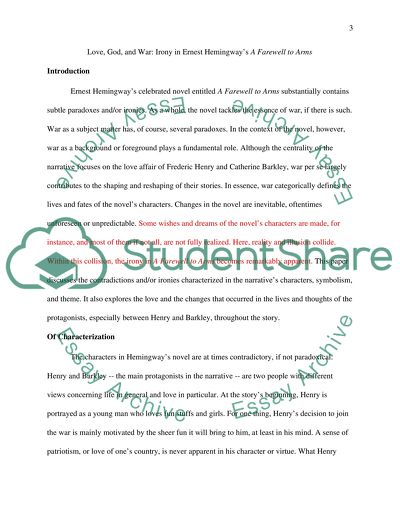Cite this document
(“Love,God,and War:Irony in Ernest Hemingways A Farewell to Arms Research Paper”, n.d.)
Retrieved de https://studentshare.org/literature/1405838-lovegodand-warirony-in-ernest-hemingways-a-farewell-to-arms
Retrieved de https://studentshare.org/literature/1405838-lovegodand-warirony-in-ernest-hemingways-a-farewell-to-arms
(Love,God,and War:Irony in Ernest Hemingways A Farewell to Arms Research Paper)
https://studentshare.org/literature/1405838-lovegodand-warirony-in-ernest-hemingways-a-farewell-to-arms.
https://studentshare.org/literature/1405838-lovegodand-warirony-in-ernest-hemingways-a-farewell-to-arms.
“Love,God,and War:Irony in Ernest Hemingways A Farewell to Arms Research Paper”, n.d. https://studentshare.org/literature/1405838-lovegodand-warirony-in-ernest-hemingways-a-farewell-to-arms.


